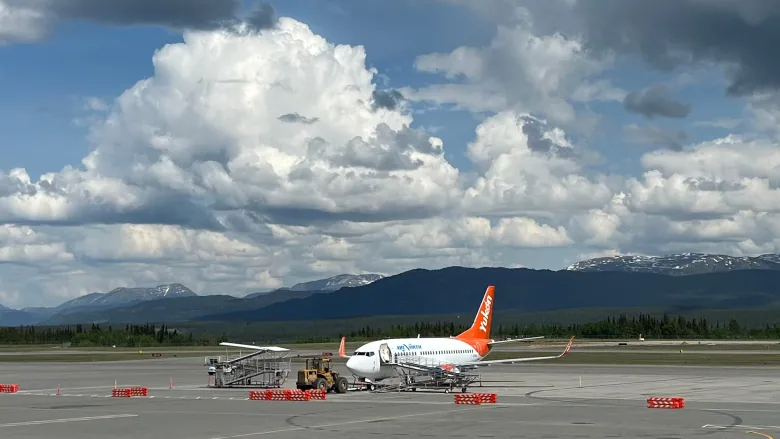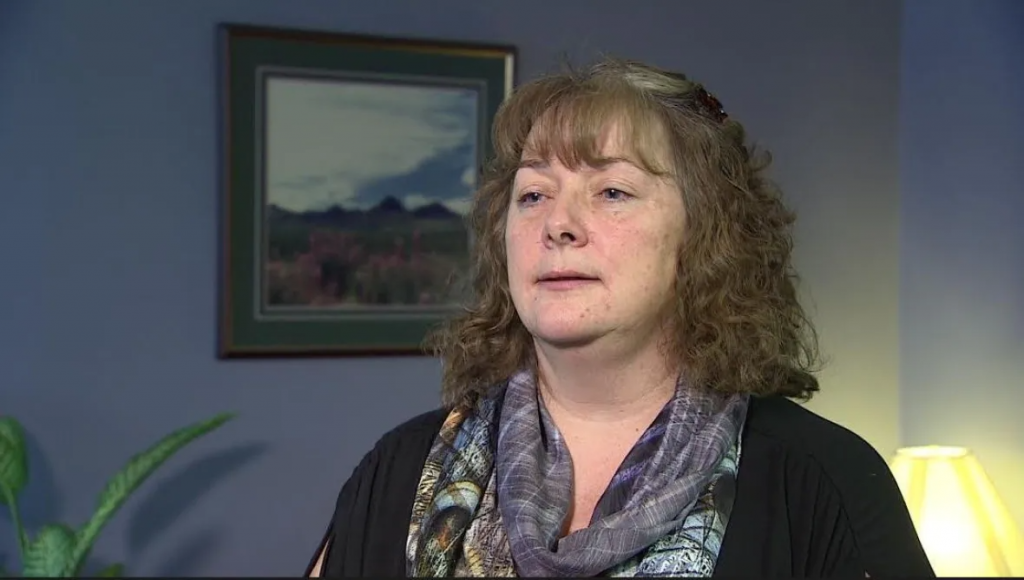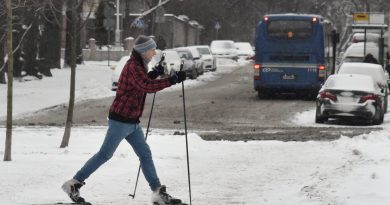Yukon’s medical travel subsidy still nowhere near enough, critics say

‘You’re forced to look at, OK, is the care that I’m going for more important than being able to pay my rent?’
The Yukon government is being urged to review its medical travel subsidy, which critics say doesn’t come close to covering the costs of travelling for care.
“Every other month, I’m out a significant amount of money for, you know, for missing work and from having expenses that I cannot afford,” said Amy Labonski, who brings her son to a cystic fibrosis clinic in Vancouver for care, about six times per year.
“Then you’re forced to look at, OK, is the care that I’m going for more important than being able to pay my rent? Or more important than being able to buy groceries?”
Labonski and her son are typically away from home for three days at a time — a day to travel south, a day for the appointment, and then a day to come home.
Under the current system in Yukon, people who are approved for outpatient medical care requiring an overnight stay outside of the territory can receive a $155 travel subsidy per day, starting on the first day. Approved escorts receive $78 per day.
Good luck to anybody stretching those dollars, Labonski says.
“Whether you’re getting an Airbnb or a hotel, you’re looking at upwards of $300 a night, which is just not doable with a Yukon government stipend,” she said.
Subsidy doubled from $75 last year
Last year, the out-of-territory travel subsidy doubled from $75 per day — a rate that had been in place for many years — to $150, with a further adjustment this year to $155.
The doubling of the subsidy last year followed a public engagement in 2019, involving surveys and focus groups with people who use the system.
“We heard time and time again in the focus groups that the $75-a-day subsidy was nowhere near enough to cover costs. Yukoners are often left paying hundreds, even thousands of dollars out of pocket to fund medical travel,” reads a report based on the public engagement process.
The report also noted that some Yukoners were simply choosing not to travel for medical care.
“It’s difficult to track the exact number of Yukoners avoiding travel because of the up-front, out-of-pocket costs, but from what we heard it is a concerning issue,” the reports reads.
According to Labonski, the increase that followed was a step in the right direction, but the government needs to go further. She says it’s especially difficult for many people, because it can take weeks to receive the subsidy.
“It’s helpful, obviously, to get some of those funds back. But I have to come up with them in the first place, and then I have to wait six, eight weeks to recoup, you know, whatever, 40, 50 per cent of what I spent — if that,” she said.
NDP Leader Kate White says it’s an issue that she hears about all the time, beginning when she was first elected more than a decade ago, and not just from people who have to travel out of territory for care. People who travel within Yukon for care also receive a subsidy, worth $78 per day. White says that’s also not enough.
“Hotel rooms in the summertime in Whitehorse are often upwards of $155 a night. And that doesn’t begin to talk about the other things … it’s putting people into financial hardship,” White said.
“There’s not a single community I go to where we don’t talk about, you know, the hardships of the medical travel program,” White said.
Residences in Vancouver, Whitehorse
Shauna Demers, director of insured health for the Yukon government’s Department of Health and Social Services, couldn’t say whether the subsidy might be increased again any time soon.
But she said the government is looking at other options, including the potential for medical residences in Whitehorse and Vancouver so patients don’t have to pay for pricey hotel stays.
That was one of the recommendations included in 2020’s “Putting People First” report, which was based on a two-year independent review of Yukon’s health care system. The report also recommended the daily subsidy increase to $150, and suggested research be done into “an additional subsidy for low-income Yukoners who may not receive care due to travel-related cost barriers.”
Speaking of the medical residences, Demers acknowledged that it “won’t happen overnight.”
“There’s been a couple of meetings, from what I understand, around this,” she said. “It’s early days.”

White likes the idea of medical residences, but says there are other things the government could look at that wouldn’t take as long to make happen.
“There’s no reason why the Yukon government can’t have purchase agreements with hotels near, for example, St Paul’s Hospital in Vancouver, where the room is subsidized — so, Yukon government pays a portion of it, and the person travelling pays a portion of it,” she said.
Labonski, meanwhile, is urging the government to again talk to the people who use the system regularly. It might not be a big issue for people who rarely travel for medical care, she says, but it’s a big deal for people like her.
“Get out there and talk to the people who are using it because we know what’s up, and we know what has to change.”
-Written by Paul Tukker with files from Mike Rudyk
Related stories from around the North:
Canada: Pangnirtung health centre in northern Canada will be closed next month due to staff shortages, CBC News
Finland: Finland’s elder care needs funding boost to meet Nordic standards: researcher, Yle News
Greenland: Greenland to reduce services amidst staffing shortages in health care system, Eye on the Arctic
Sweden: Fewer people suffering strokes in Sweden, Radio Sweden
United States: Indigenous students in Alaska get hands-on medical experience at nursing camp, Alaska Public Media



